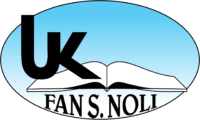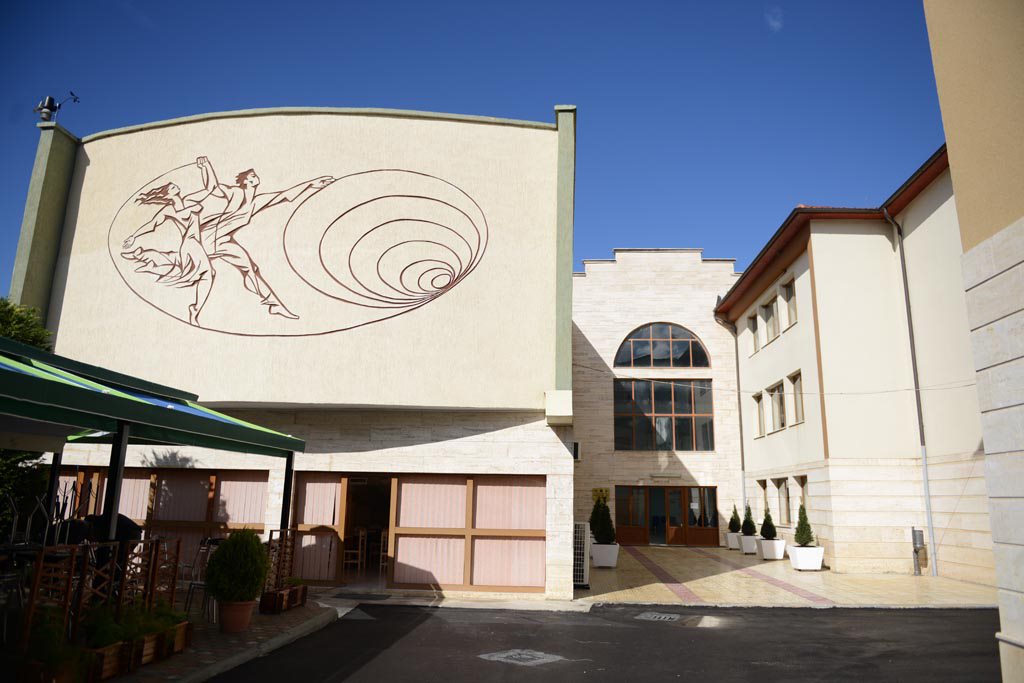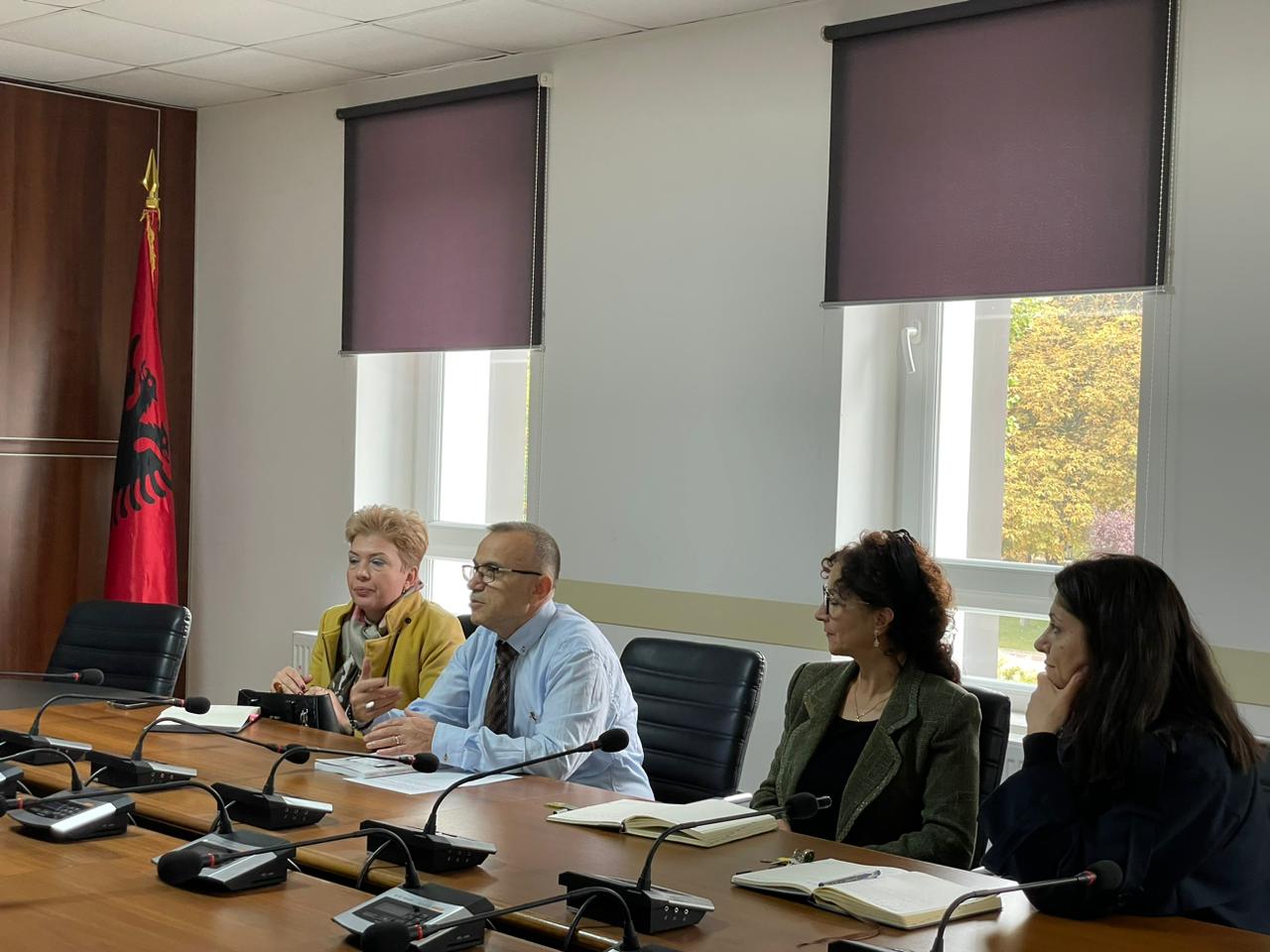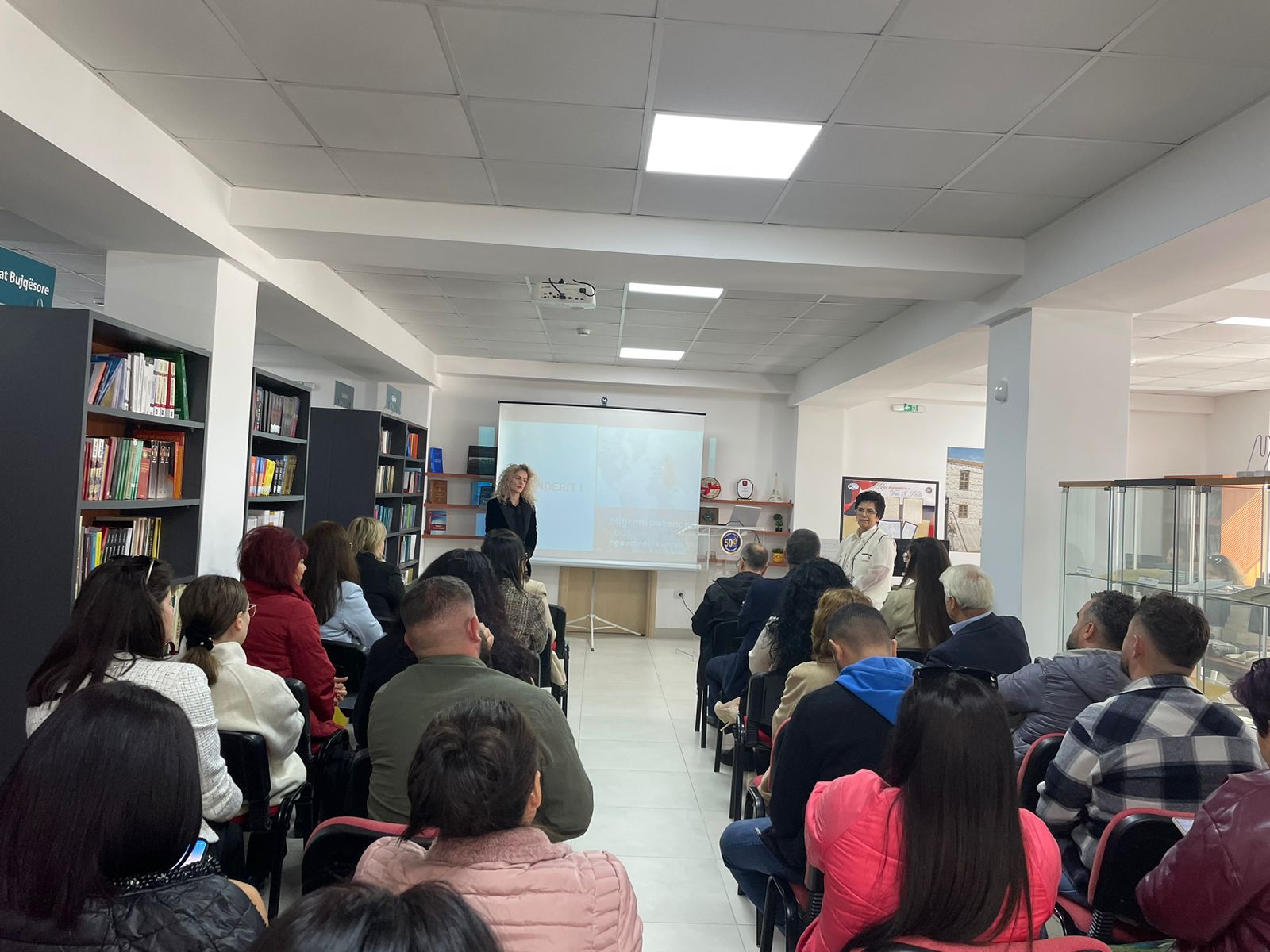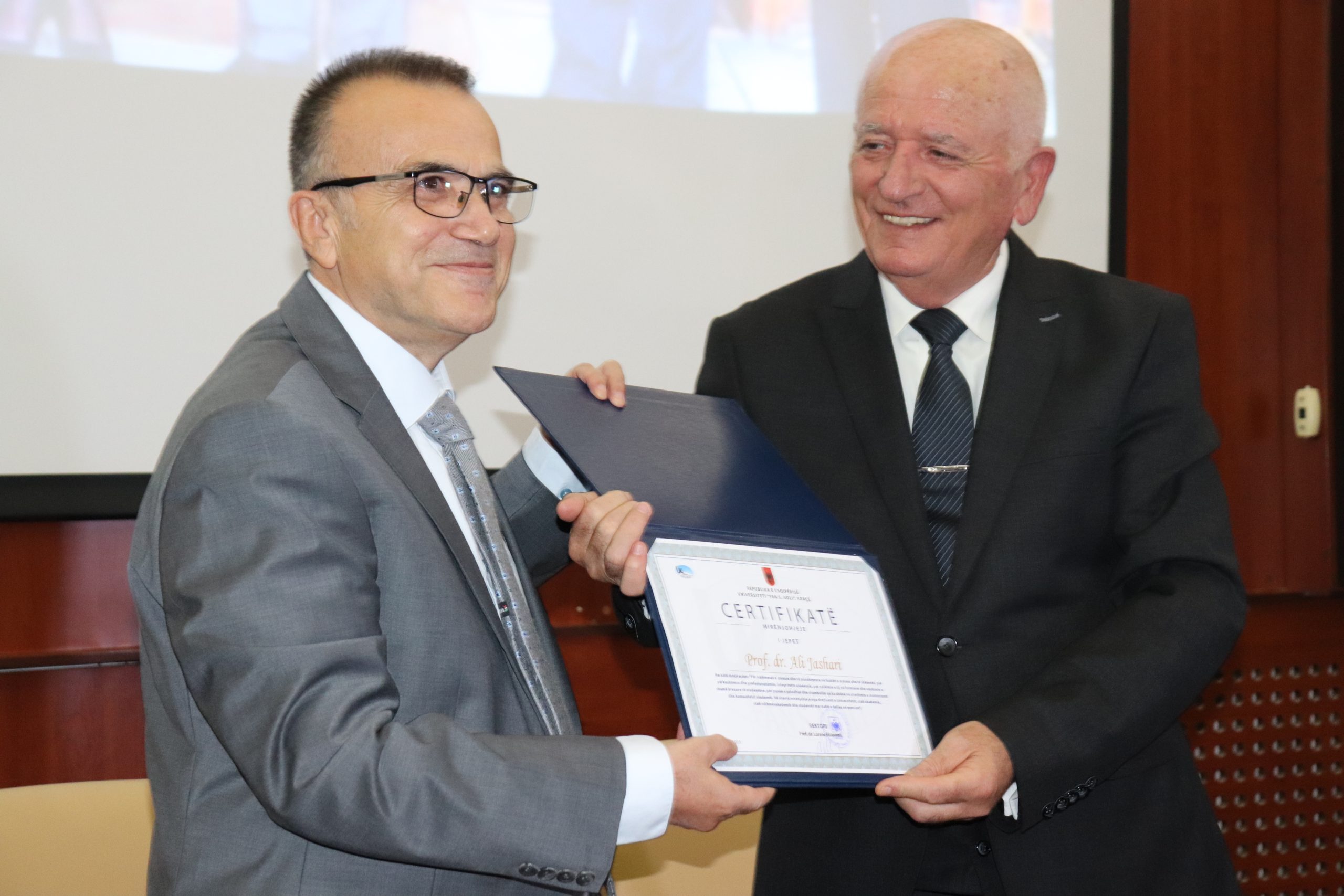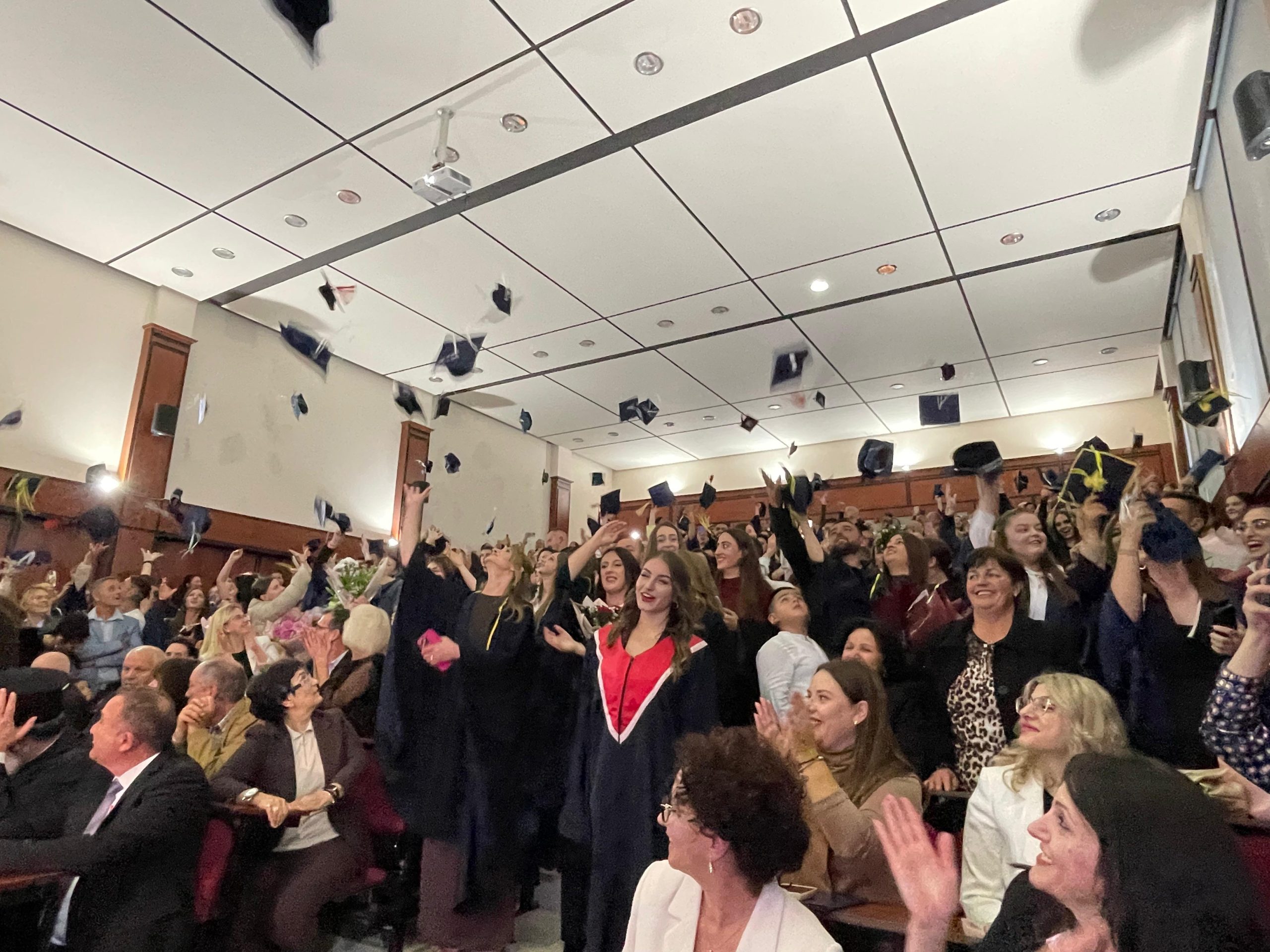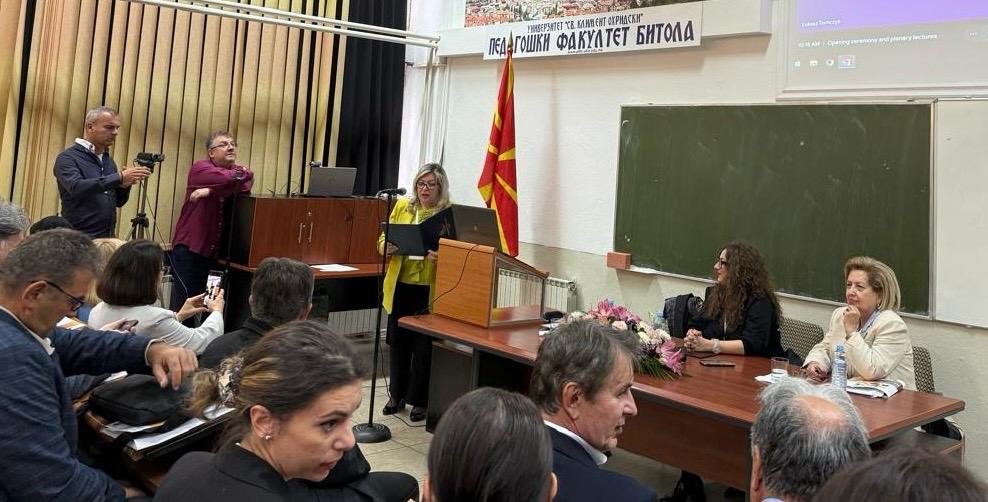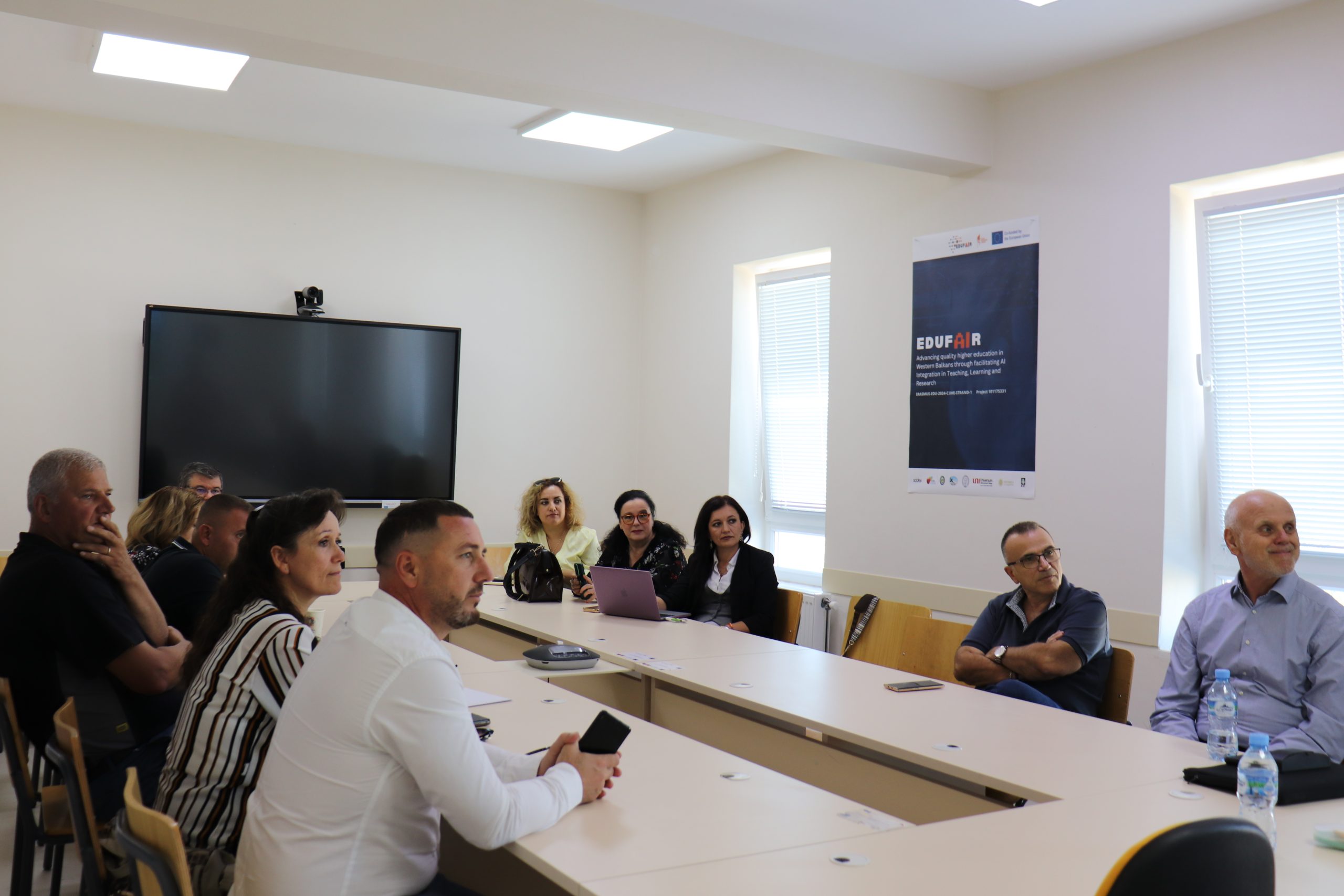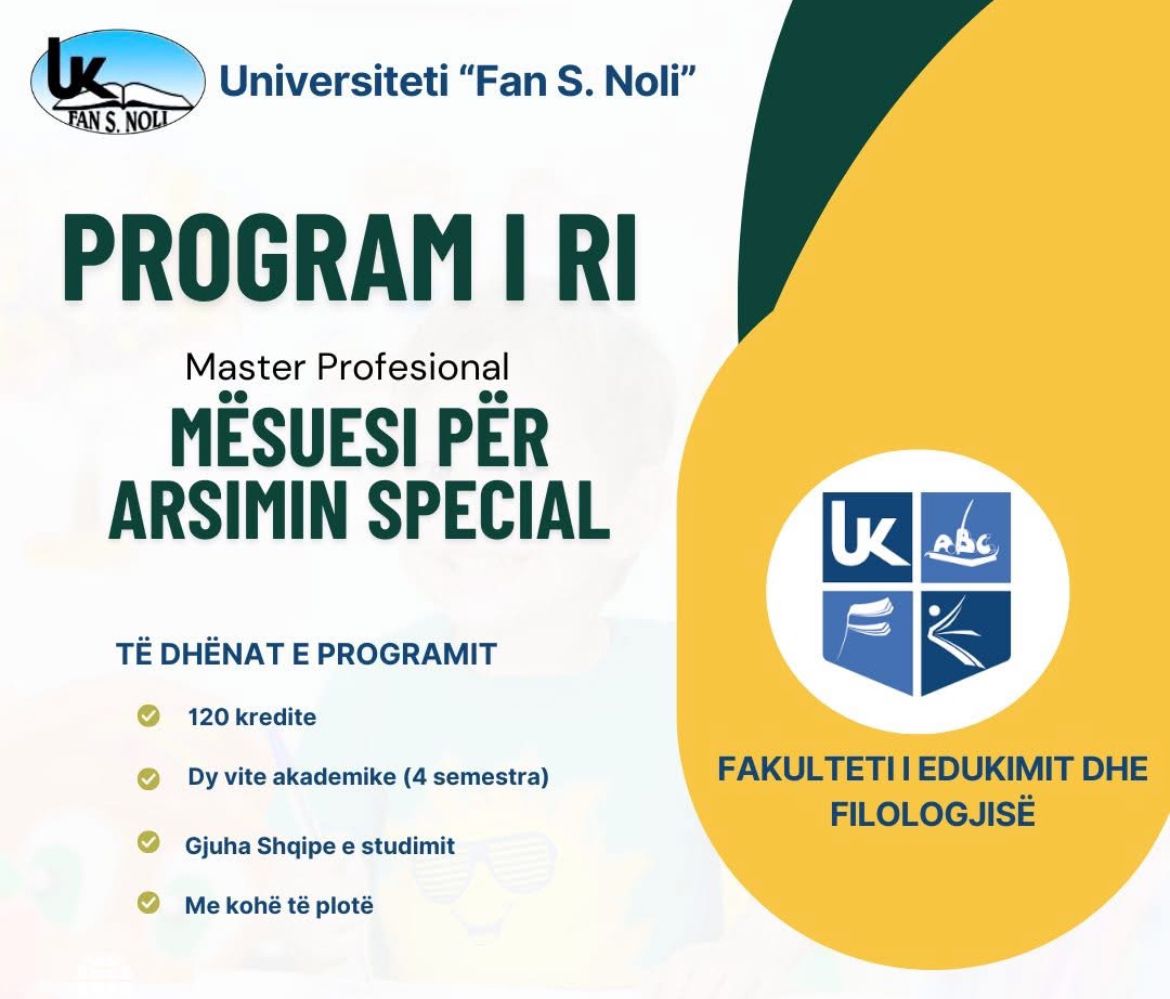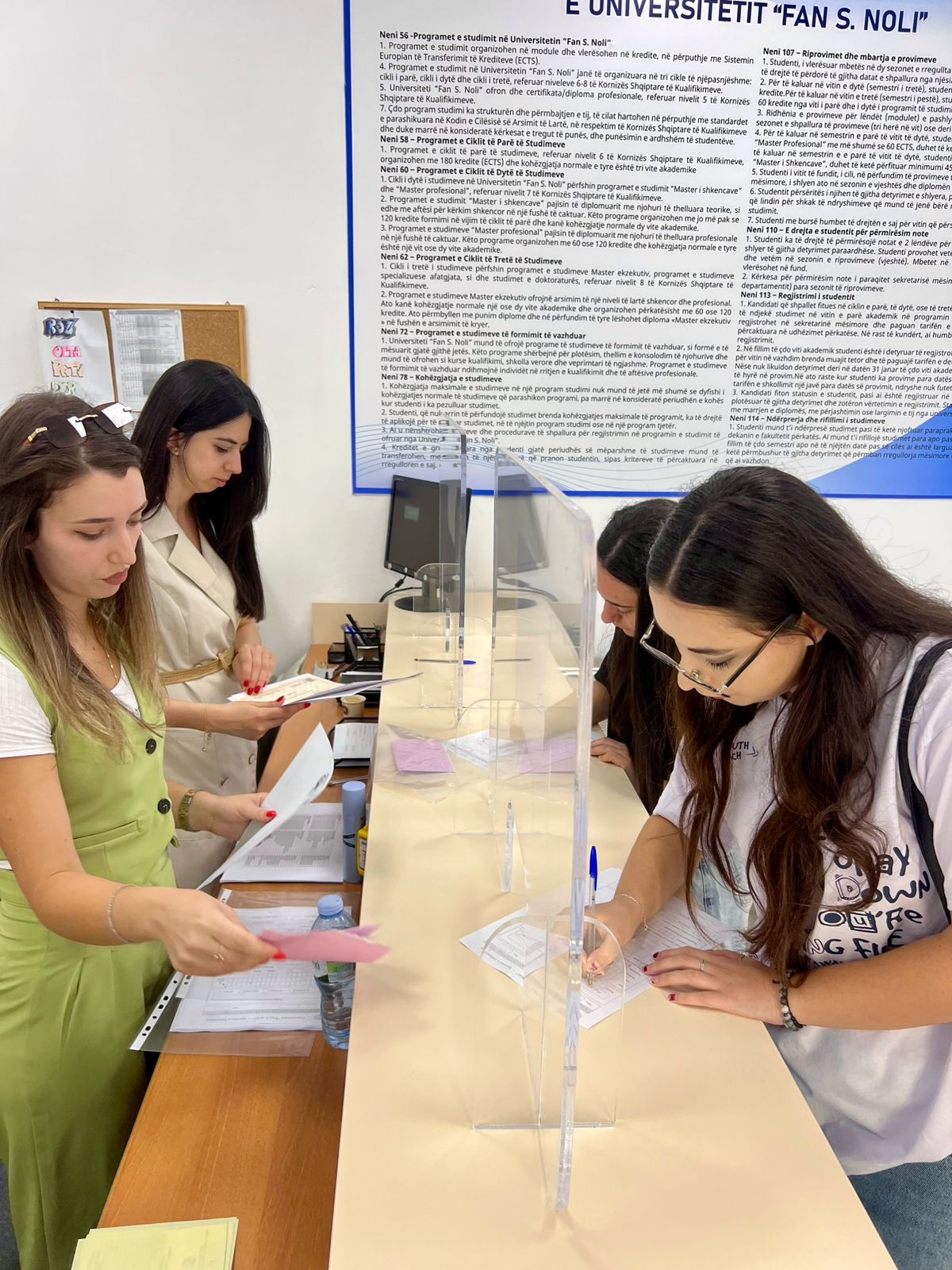About Faculty
The Faculty of Education and Philology has a modern infrastructure that supports teaching and scientific activities, including 10 classrooms equipped with video projectors, an amphitheater with a capacity of 238 seats, 10 lecture halls, a media room, a computer science and foreign language laboratory, a videoconference room, a digital foreign language laboratory, and a scientific research and didactic laboratory in the field of phonetics. The Faculty also includes the hall of the Center for Continuing Education, a secretarial office, a student information office, 10 offices and workspaces for academic and teaching assistant staff, and a library.
The Faculty operates a specialized library in Albanian and foreign languages, containing about 6,000 titles and 15,000 books. Students and lecturers also have access to the digital libraries of several foreign universities.
The Faculty of Education and Philology has organized and continues to organize national and international scientific conferences and maintains mutual cooperation with 12 counterpart faculties in Albania, the Balkans, and Europe. It also publishes collections of conference proceedings, monographs, and other scholarly materials.
Distinguished literary and scientific figures from Albania and various European universities have been invited to deliver lectures and hold discussions at the Faculty of Education and Philology.
The Faculty of Education and Philology publishes the “FEF Scientific Yearbook,” a series that includes scientific papers by lecturers and summaries of papers presented at various conferences.
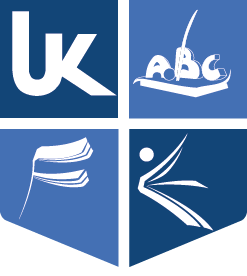
INFORMACIONET E FAKULTETIT:
Adresa:
Shëtitorja Rilindasit, Korçë, Shqipëri, 7001
Tel: +35582248944
Email: fedukimit@unkorce.edu.al
Orari Mësimor:
FAKULTETI I EDUKIMIT DHE I FILOLOGJISË
SEMESTRI I PARË
(BA) Gjuhë Angleze (BA) Gjuhë dhe Kulturë Frenge
(BA) Mësuesi për Arsimin Fillor
(BA) Mësuesi për Arsimin Parashkollor
MISSION AND VISION
The Faculty of Education and Philology envisions building a faculty that adapts its study programs to labor market demands and creates suitable conditions for educational, scientific, economic, intellectual, and cultural initiatives. Its mission is to develop a rigorous teaching and research process supported by well-equipped infrastructure, including a library with continually expanding collections, various laboratories aligned with program requirements, and modern technology. The Faculty’s mission aligns with the university’s goal of establishing an urban public educational center in the southeastern region. This center aims to follow the best traditions of the Western world while preserving and advancing innovations in knowledge, fostering intellectual integrity and freedom, enhancing teaching programs and curricula, and providing students and the community with a welcoming and well-serviced environment.
The mission of the Faculty is to provide students with quality education and professional training in education, while also meeting labor market standards by offering study programs that prepare specialists and teachers in various fields. Students graduate with a broad range of knowledge that supports the development of their future careers and equips them to become influential individuals and contributors to society through knowledge and service.
The Faculty of Education and Philology has both short-term and long-term strategies to achieve the goals and objectives outlined in its vision and mission. Its strategic directions are defined through a set of interrelated objectives, which aim, among other things, to enhance the quality of awarded diplomas and improve the quality of scientific research.
The Faculty of Education and Philology envisions building a faculty that adapts its study programs to the demands of the labor market and provides suitable conditions for educational, scientific, economic, intellectual, and cultural research initiatives. Its mission is to foster a challenging teaching and research environment supported by good infrastructure, including a library (with regularly updated book collections), various laboratories (aligned with the requirements of the study programs), and modern technology.
